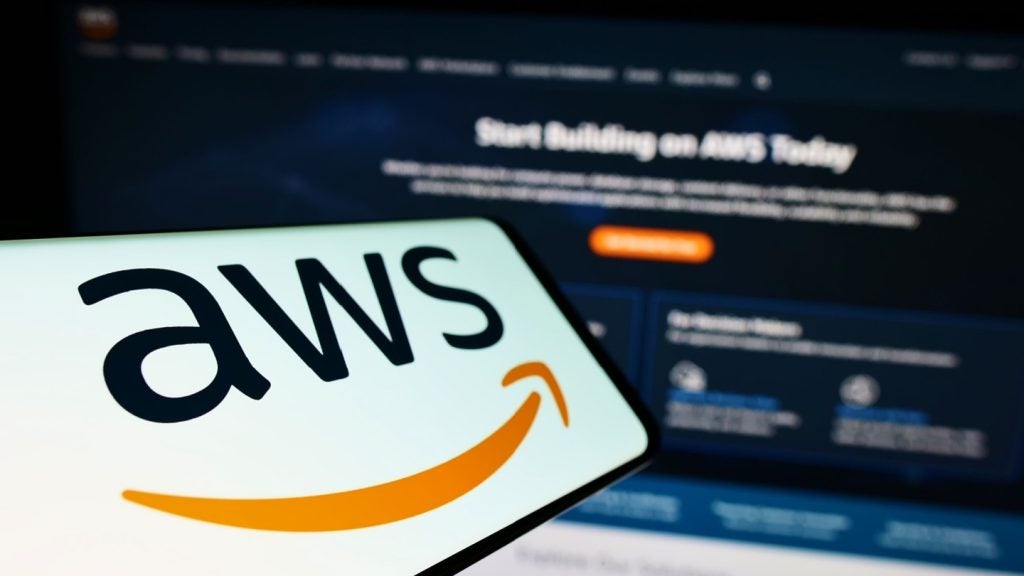The future of the cloud services industry will be shaped by a range of disruptive themes, with cloud computing being one of the themes that will have a significant impact on cloud services companies. A detailed analysis of the theme, insights into the leading companies, and their thematic and valuation scorecards are included in GlobalData’s thematic research report,Cloud Computing – Thematic Intelligence. Buy the report here.
Cloud computing is computing delivered as an online service. It encompasses the provision of IT infrastructure, operating software, middleware, and applications hosted within a data centre and accessed by the end user via the internet.
Cloud computing’s importance has grown significantly in recent years. It has enabled the use of shared IT infrastructure and services to create a flexible, scalable, and on-demand IT environment. The cloud is now the dominant model for delivering and maintaining enterprise IT resources, including hardware (e.g., compute, storage, and networking), software (e.g., database, analytics, and enterprise resource planning), and platforms and tools for application developers.
Cloud computing provides users with an approach to consuming IT that is significantly more flexible, resource-efficient, and cost-effective compared to traditional IT. Cloud-based IT resources can be delivered privately, for use by one or a specific group of enterprises, or publicly, where IT resources are accessed according to multi-tenancy principles. Hybrid cloud environments, which combine the use of both public and private cloud, are becoming increasingly popular among enterprises that aim to enjoy the benefits of both.
However, not all companies are equal when it comes to their capabilities and investments in the key themes that matter most to their industry. Understanding how companies are positioned and ranked in the most important themes can be a key leading indicator of their future earnings potential and relative competitive position.
According to GlobalData’s thematic research report, Cloud Computing, leading adopters include: Microsoft, Amazon, Alphabet, Alibaba, IBM, OVHcloud, Oracle, VMware, Cisco and HPE.
Insights from top ranked companies
Microsoft
Microsoft provides a broad spectrum of services, including cloud-based solutions, solution support, and consulting services. Its Azure business is second only to AWS for its comprehensive cloud model, including core development technologies such as mobile, IoT, and serverless. The billions of dollars of annual investment the company has made in Azure are paying off, allowing Microsoft to reposition itself as a cloud-first and mobile-first company. Microsoft has built momentum through key acquisitions (including Xamarin in 2016), and technology partnerships, including Oracle and Docker, recruiting more developers by offering them a broader platform (including iOS and Android) on which to create apps. However, Microsoft faces increased pressure from OSS-based technologies offered by Red Hat and Cloud Foundry, as well as disruptors providing backend integration via API services, such as Chef. It also lacks internal professional services needed to support complex application infrastructure integrations.
Amazon
Amazon Web Services (AWS), a subsidiary of Amazon, provides a comprehensive range of cloud infrastructure and platform services. These include compute, storage, databases, analytics, networking, mobile, developer tools, augmented reality and virtual reality, robotics, machine learning, hybrid and management tools, content delivery, media services, customer engagement, app streaming and security, identity and compliance, and serverless computing. The company is widely perceived as not just the market leader in on-demand compute and storage services but as the market maker in IaaS. While not on par with some pure-play rivals for point offerings such as application programming interface (API) management, solutions are very capable and well enough integrated to put AWS in the top tier of platform providers.
Google is a leading provider of search and internet advertising services and, more recently, a viable platform services rival to AWS and Microsoft Azure. Google Cloud Platform’s revamped multi-cloud management capabilities for managing rival clouds and new microservices service mesh functions are triggering interest from key infrastructure partners, including Cisco, that view the company as an alternative to AWS and Azure. Under the leadership of CEO Thomas Kurian, who joined in January 2019, Google Cloud has experienced a resurgence, driven by a tighter focus on key developer technologies and important supporting acquisitions, such as Looker.
To further understand the key themes and technologies disrupting the technology industry, access GlobalData’s latest thematic research report on Cloud Computing.
- Baidu
- Tencent
- Equinix
- Huawei
- Lenovo
- Cloudera
- SAP
- Dell
- Cloudflare
- Lumen
- HashiCorp
- Inspur Electronic
- Rackspace Technology
- F5 Networks
- Rubrik
- Cato Networks
- Aviatrix
- Snowflake
- Hitachi
- GoDaddy
- Nutanix
- Box
- SUSE
- Micro Focus
- Citrix Systems
- Salesforce
- Shopify
- Zoom
- Fujitsu
- NetApp
Premium Insights
From

The gold standard of business intelligence.
Blending expert knowledge with cutting-edge technology, GlobalData’s unrivalled proprietary data will enable you to decode what’s happening in your market. You can make better informed decisions and gain a future-proof advantage over your competitors.









